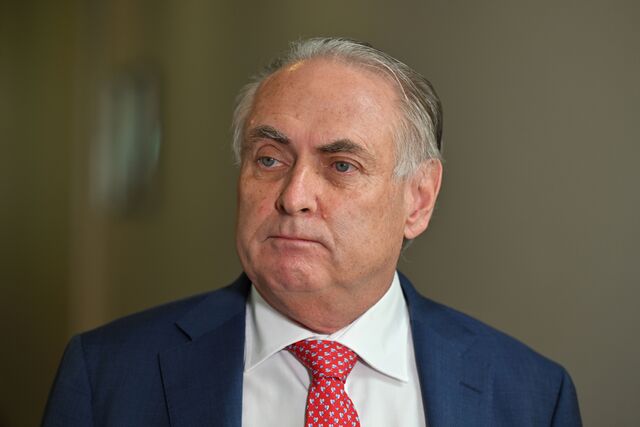The Federal crossbench is crying out against new legislation passed in Parliament recently which altered the caps and disclosure requirements on electoral donations, with new amendments since it was introduced in November.
Crossbenchers are calling the Electoral Legislation Amendment (Electoral Reform) Bill 2024 a ‘major party stitch-up’ while Labor and Liberal argue it improves transparency and reduces the influence of ‘big money’ on politics.
In an article for The Conversation, Professor at Melbourne Law School and Director of the Centre for Public Integrity Joo-Cheong Tham said the amendments fail to address numerous deficiencies in the original bill that was introduced last November.
“Transparency has been wound back and hollow contribution caps have been locked in,” he said.
“In significant respects, however, the package is an improvement on the status quo, which has seen unrestricted donations and spending flourish. So, too, secrecy,”
“We need to penetrate the sound and fury of partisanship and assess the substance of these laws. This will yield a much more nuanced picture than conveyed by crossbench claims of a major party stitch up.”
Prof Tham’s articles identify that the ‘improvement on the status quo’ can be seen in a few aspects of the bill:
The disclosure threshold for donations has been reduced to $5000 down from $16,900 per annum this financial year, though it is up from the $1000 originally proposed in November 2024.
Donations in an election period must be disclosed with 24 hours of receipt in the week before and after polling day or with seven days otherwise
$800,000 per electorate and $90 million per party national spending limit, intended to prevent the funnelling of money to marginal seats
Introduction of overall gift caps and closure of loopholes that allowed self-financing candidates, such as Clive Palmer with the United Australia Party or Malcolm Turnbull when he donated $1.75 million to the Liberal Party pre-2018 election, to pour money into parties.
Current exclusions, such as membership or affiliation fees to party-aligned entities, will also be brought under the caps.
A ‘warranted’ increase in public funding from $3.50 to $5 per vote.
Prof Tham said the new framework is unfair and ineffectual in significant ways and yet democracy-enhancing in others.
“In blatant disregard for democracy, the government refused to refer the bill to a parliamentary committee for proper scrutiny,” he said.
“Bad processes tend to make bad laws. The government’s actions have cast a pall of illegitimacy over its political finance regime,”
“We are all trustees of democracy, with an obligation to protect and deepen democratic practices. An urgent task in that continuing struggle is to protect the strengths of these laws while jettisoning the elements that are egregiously bad.”
Prof Tham’s article identified a number of shortcomings or instances of unfairness in the bill:
A loophole remains that a donor could make undisclosed donations to all state and federal branches of a political party if the donation is under the threshold meaning a donor could, in theory, donate $44,991 to the Australian Labor Party spread across its nine branches without being disclosed. The same loophole also applies to the annual gift cap, where the donations would have to be disclosed, but could total nearly $450,000
The annual gift cap, which doubled to $50,000, and the overall gift cap at $1.6 million will still allow for large donations while parties can continue to register ‘nominated entities’ which can generate income outside of the gift caps
The per electorate and national limits are set to high, leaving major parties still have significant leeway to shift funding to marginal seats, though the limits are still an improvement on the current ‘unfettered’ spending
A ‘structural bias’ remains which favours incumbents, regardless of political party or allegiance
Independent candidate for Casey Claire Ferres-Miles said Labor and Liberal have passed new electoral laws to pay themselves more public money, cooking the books for their own self-interest.
“Supported by both the Labor and Liberal parties including our Federal MP for Casey, the new rules further entrench the two-party duopoly, written specifically to exclude Community Independents,” she said.
“Primary votes for the two major parties have been steadily declining over the past decade. They could have won back voters with good policy decisions, but no they have decided to rig the system,”
“This 400-page bill has not followed usual Parliamentary processes – rammed through by the duopoly with no scrutiny, no consultation, no community submissions, no review.”
The Greens, who as a party policy disclose any donations over $1000, were also disillusioned with the bill.
Greens candidate for Casey Merran Blair said it is really disappointing to see this bill rushed through without due diligence or proper discussion and negotiation.
“Our goal is to see publicly funded elections at all levels of government to remove the influence that big money can have on our democracy,” she said.
“Having the threshold at $5000 means less transparency, which is not a positive outcome, the two major parties have trained us well to accept the least worst option,”
“It would be nice if they would step up to the plate for once and actually do the right thing for Australians, instead of constantly tinkering around the edges.”
Current Casey MP Aaron Violi largely supported the premise and goal of the bill in improving transparency, while also expressing faith in the due diligence of Labor Special Minister of State Don Farrell despite the Labor Government’s decision to forego putting the bill to a parliamentary committee.
Mr Violi said he believes this strikes the right balance of reducing the amount of money in politics while also allowing the Australian people to rightly engage in politics through donations.
“In the federal system every political party will have state-based branches and also a federal branch, the Greens, the Nationals, UAP, One Nation, they all have the same structure it’s not just the Liberal Party and Labor Party and also the reality is that while we sit under the Liberal banner or the Labor banner or the Greens banner, a federal division is a separate organisation to the state division with different structures and different staffing,” he said.
“It is clear on the public record that Don Farrell has been engaging and consulting for almost three years in regard to the legislation and has consulted and engaged widely with all political parties within the Federal Parliament and all members of Parliament and had many conversations,”
“But in terms of the process, this was a process of the Government and they would have to provide more detail on their thinking of why they’ve engaged the way they have.”
Mr Farrell himself held a doorstop interview to discuss the bill on 13 February.
Mr Farrell said from the day he took office, they started the process of consultation on the bill.
“What this legislation does is to level the playing field in terms of the Australian electoral system, it also increases the transparency of that system so that all participants in the electoral process are treated equally,” he said.
“You shouldn’t have to be an acolyte of Clive Palmer, for instance, in order to be involved in the Australian electoral process, ordinary Australians should be able to exercise their democratic right to get involved into the electoral process,”
“I’ve made myself available, my staff have made themselves available, the Department has made itself available to explain all of these provisions but nothing that was put through the Parliament last night came as a surprise to anybody in that room who was taking an interest in the electoral process.”







